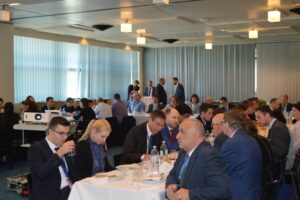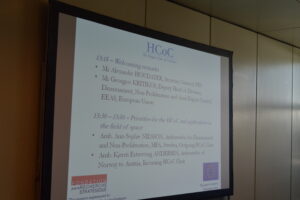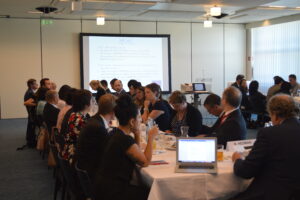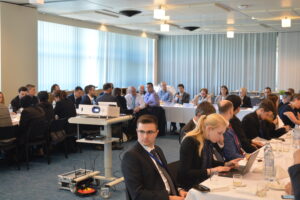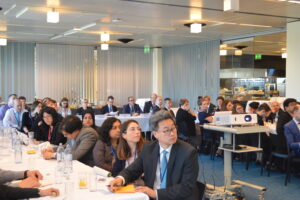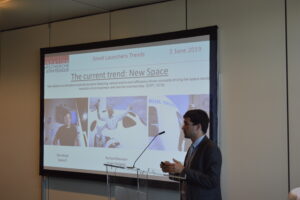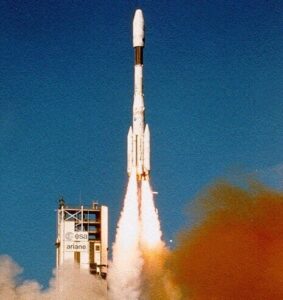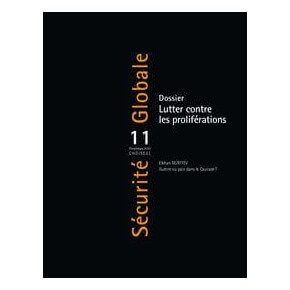The Hague Code of Conduct and Space
3 June 2019
On 3 June 2019, the FRS conducted a Side Event on the Hague Code of Conduct and Space, in the margins of the HCoC Annual Regular Meeting in Vienna.
AGENDA
WELCOMING REMARKS
- Mr Alexandre HOUDAYER, Secretary General, FRS
- Mr Georgios KRITIKOS, Deputy Head of Division, Disarmament, Non-proliferation and Arms Export Control, European External Action Service
I/ PRIORITIES FOR THE HCoC & APPLICATION IN THE FIELD OF SPACE
PRESENTERS:
- Amb. Ann-Sofie NILSSON, Ambassador for Disarmament and Non-Proliferation, Ministry of Foreign Affairs, Sweden, Outgoing HCoC Chair
- Amb. Kjersti Ertresvaag ANDERSEN, Ambassador of Norway to Austria, Ministry of Foreign Affairs, Norway, Incoming HCoC Chair
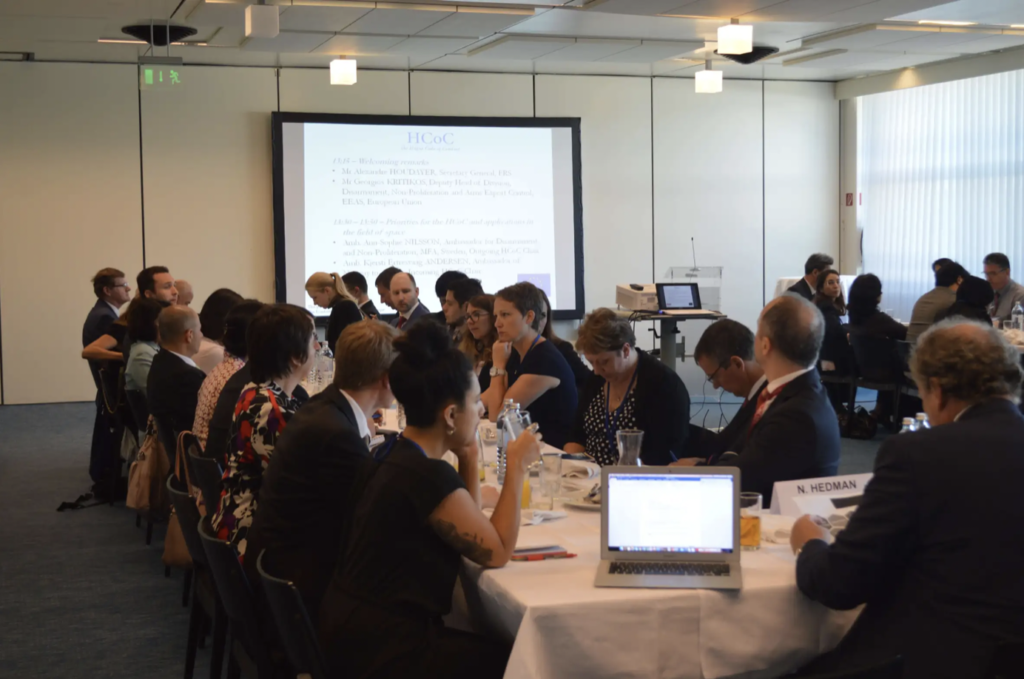
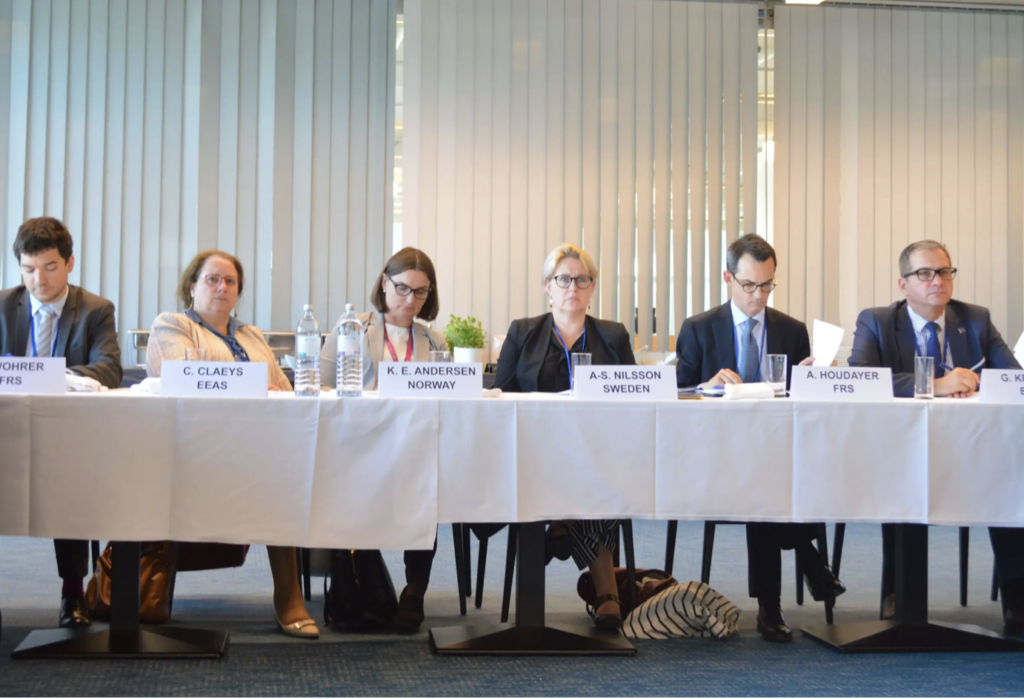
II/ HCoC & SPACE: EVOLUTIONS & CHALLENGES OF CONFIDENCE-BUILDING MEASURES IN THE FIELD OF SPACE
PRESENTERS:
- Ms Carine CLAEYS, Acting Special Envoy for Space and Head of the EEAS Space Task Force, European External Action Service
- Mr Niklas HEDMAN, Chief, Committee Services and Research Section, Office for Outer Space Affairs, United Nations Office
- Mr Paul WOHRER, Research Fellow, FRS
KEY ISSUES:
- The HCoC and space
- Evolution in space technologies and their impact on an instrument like the HCoC
- Confidence building measures and the peaceful use of space

